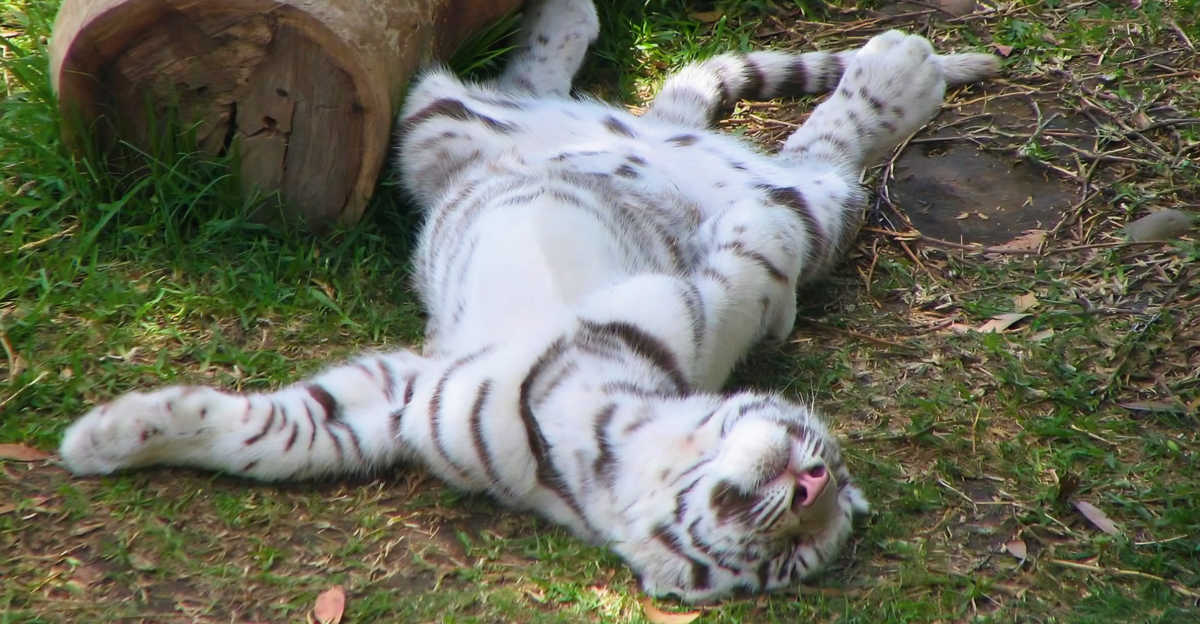
You may be a sleep champion yourself after a weekend lie-in, but there are animals which would laugh at your 10-hour marathon. To be honest, sleep in the wild is not just a luxury, but a survival strategy.
From conserving energy on low-calorie diets to remaining concealed from predators, these animals have mastered the art of sleeping for most of their lives.
But who’s the true king of Napland? Whether it’s up in a tree, down in a cave, or cozied up in a burrow, these animals are proving that sometimes the best strategy is just to chill out. Let’s count down nature’s sleepiest beasts.
1. Koala – 20 to 22 Hours
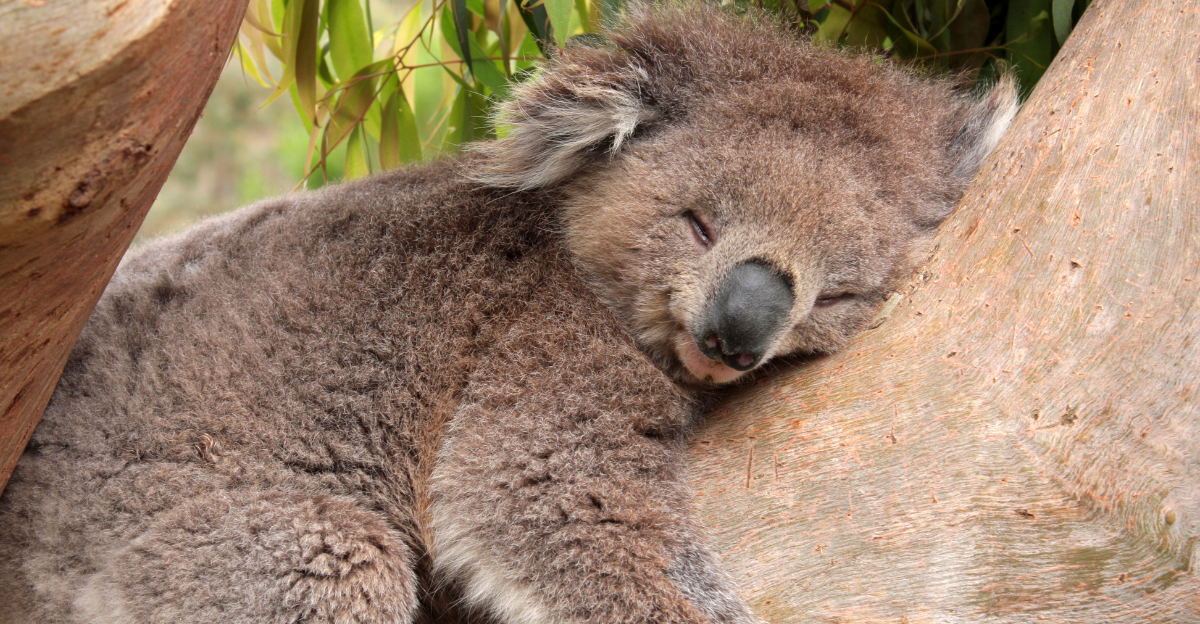
If napping were an Olympic sport, the koala would win gold—if only it could stay awake long enough to receive it. Koalas are native to Australia and snooze an astonishing 20 to 22 hours a day.
Their secret? A low-calorie eucalyptus leaf diet, which is difficult to digest and slightly toxic. Sleeping saves energy to digest their fibrous diet. And when they’re not sleeping, they’re chewing. So yeah, it’s a pretty laid-back life.
But don’t let their slouchy demeanor fool you—koalas are master energy managers. They’re really zen survivalists in fur coats.
2. Little Brown Bat – Up to 20 Hours
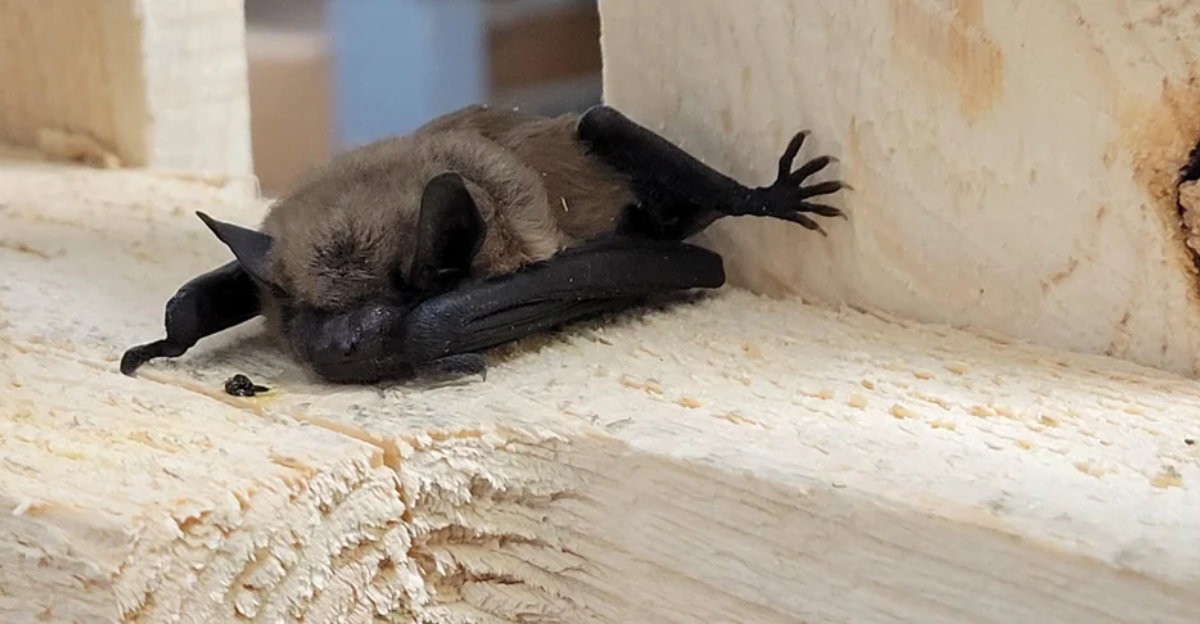
The little brown bat may be small, but it’s committed to rest. These nocturnal mammals sleep up to 20 hours a day, curled upside-down in dark, cool spots like caves or attics.
That much sleeping may sound lazy, but it’s really a keen energy-conserving tactic. Their high metabolism and tiny size generate a rapid burn of energy, so they need daytime sleep to balance it out.
In winter, their sleeping ramps up to hibernation, when heart rate slows. They’re one of nature’s greatest examples of strategic napping. And they eat mosquitoes, so they’re entitled to nap guilt-free, don’t you agree?
3. Sloth – 15 to 20 Hours
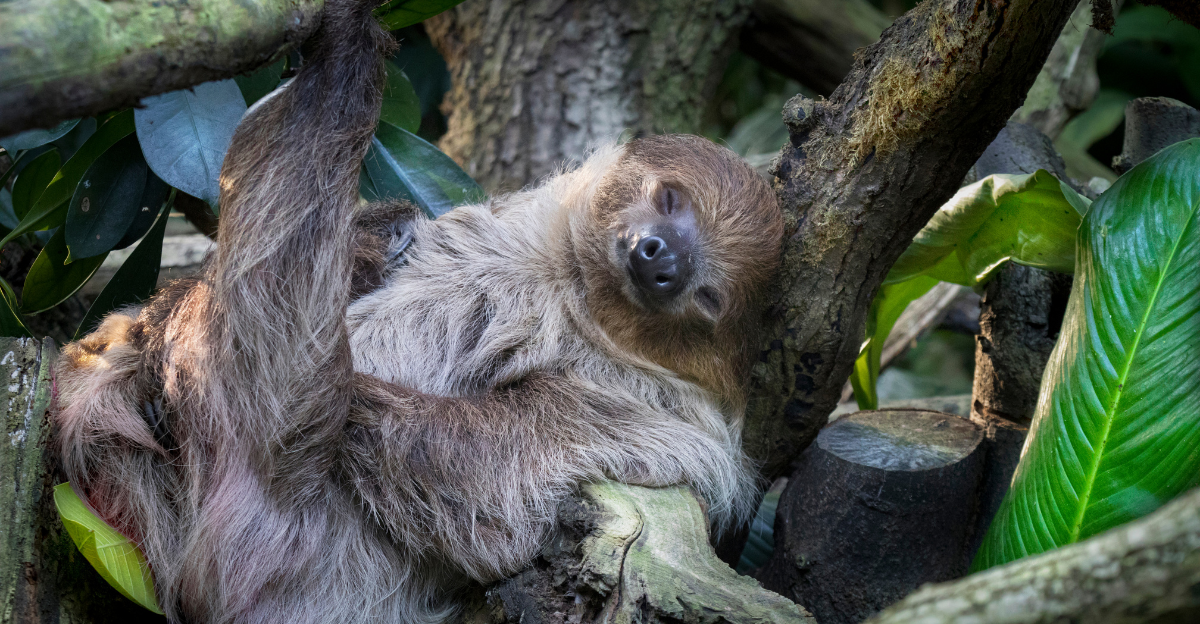
When you think “sloth,” you likely already have slow motion and perpetual naps in mind—and you’d be largely correct. These tree-dwelling Central and South Americans sleep, on average, 15 to 20 hours a day in captivity, although they do slightly less sleeping in the wild.
Movement is energetically costly due to their slow metabolism, so resting is their best option. Sleeping is a form of safety insurance. By barely moving at all, they deter predators and conserve calories.
They even sleep suspended from branches! It’s not laziness—it’s biological genius. In a world where everyone’s so busy, the sloth’s relaxed way of life can be inspiring.
4. Giant Armadillo – Approximately 18.1 Hours
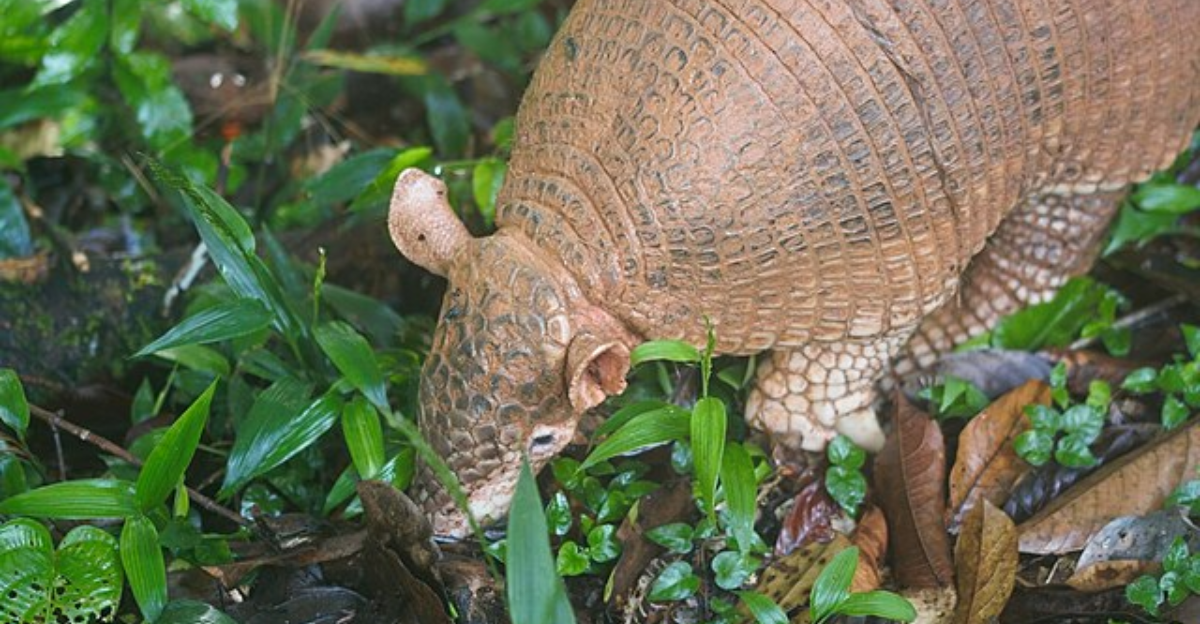
Say hello to the armor-plated insomniac—uh, no, the opposite. The giant armadillo sleeps around 18.1 hours a day! These nocturnal, solitary South American animals like to hide underground in deep burrows and emerge primarily at night.
Their long sleep cycles are all thanks to some extent to their hermit lifestyle and peaceful nature. With huge claws and a keen sense of smell to sniff bugs out, they have no business rushing anything.
Scientists are hardly ever able to catch them in the wild, which is a testament to how dedicated they are to staying chill. Their secret life of napping is another reason they’re so mysterious.
5. Python – Up to 18 Hours
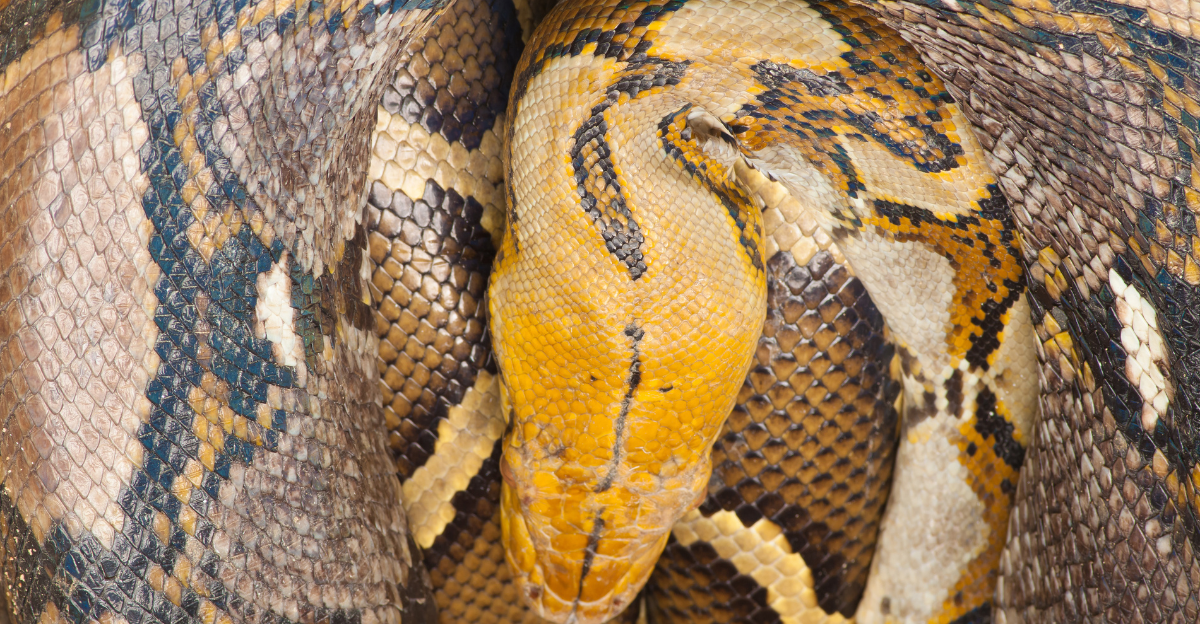
While you’re binge-watching TV, the python is probably curled up somewhere digesting dinner—for hours. These cold-blooded reptiles are sleep pros, clocking up to 18 hours a day of rest.
After swallowing a large meal (sometimes the size of a goat), they enter a near-comatose state to conserve energy and fuel digestion. Since they don’t generate their own heat, resting in a warm spot helps them break food down efficiently.
Hunting may last hours or days, so after they’ve eaten their fill, it’s time to relax. It’s not laziness—it’s efficiency. Essentially, they sleep off their meals like professionals. And they hardly move in the process.
6. North American Opossum – 18 Hours
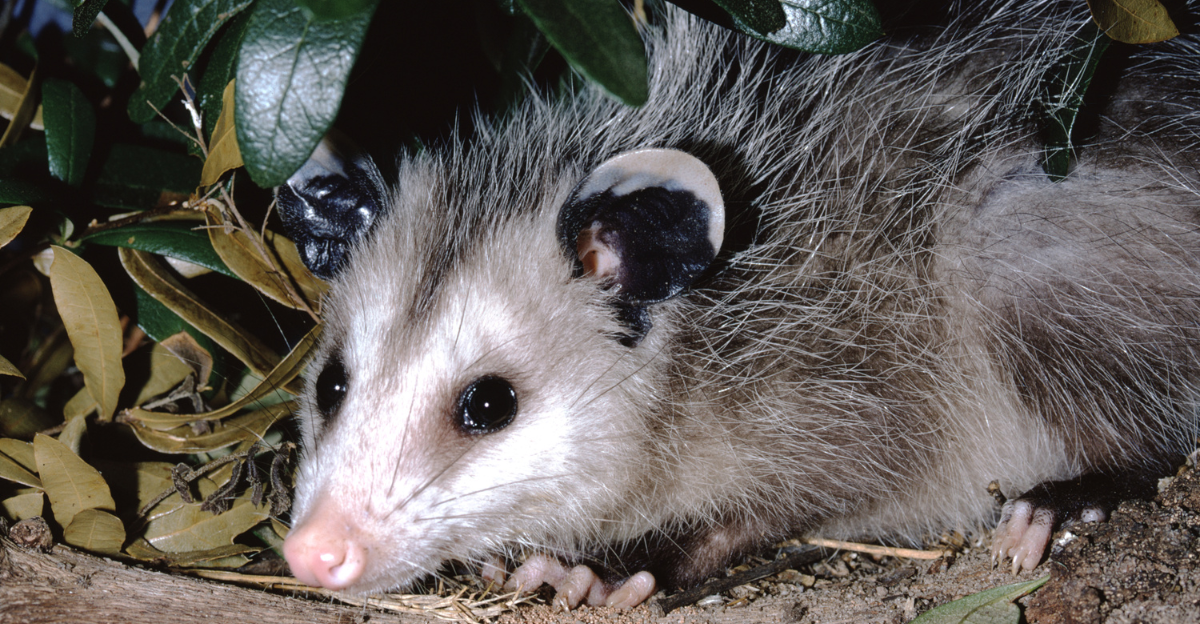
Often confused with rats, these poor marsupials are sleep masters. North American opossums sleep 18 hours a day on average. They’re nocturnal, foraging in trash or snacking on fruit and insects by night.
Their relatively low body temperature and slow metabolism are a great reason to save energy by sleeping. And they play dead so well that it’s called “playing possum.” Sneaky and sleepy.
While they’re not exactly beauty contest winners, their role in ecosystems—eating ticks and pests—is priceless. And when their workday is finished, they crash hard.
7. Owl Monkey – About 17 Hours
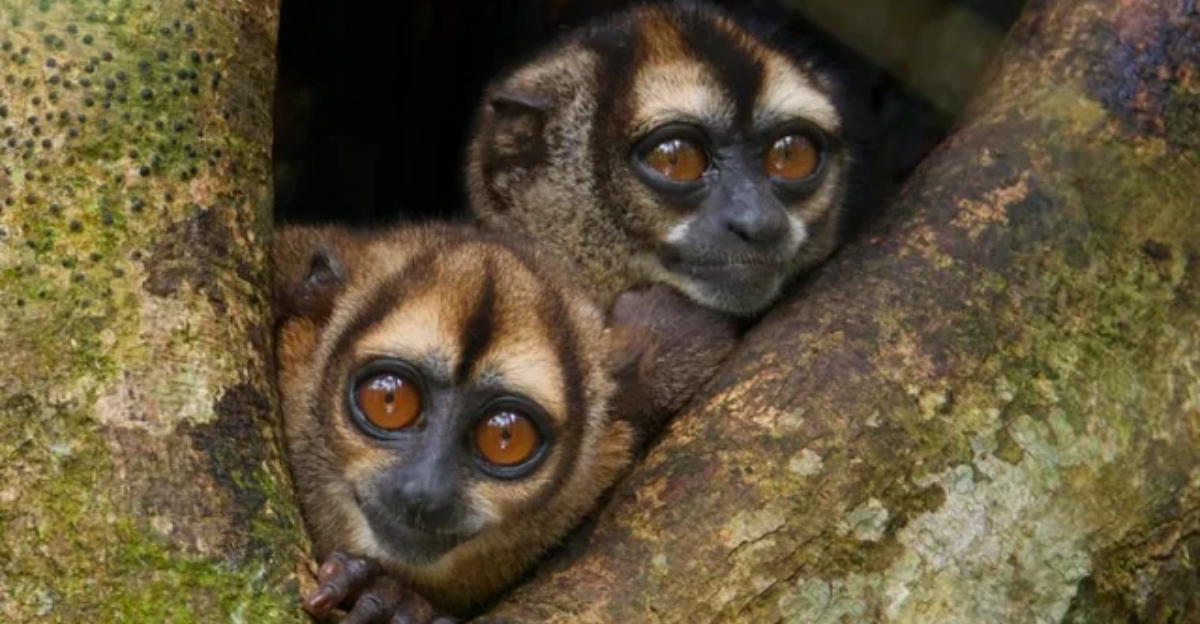
Those big, round eyes give owl monkeys a perpetually surprised expression—but that’s merely a side effect of nocturnality. Also referred to as night monkeys, the rainforest dwellers sleep around 17 hours a day.
While most monkeys are diurnal, the owl monkeys flip the rooster routine and party all night. They forage for insects and fruit at night, then hide and sleep the day away.
Their sleep is usually uninterrupted and peaceful. So even though they appear to be party animals, they are shy little night owls who adore peace, quiet, and lots of shut-eye.
8. Tiger – 15.8 Hours
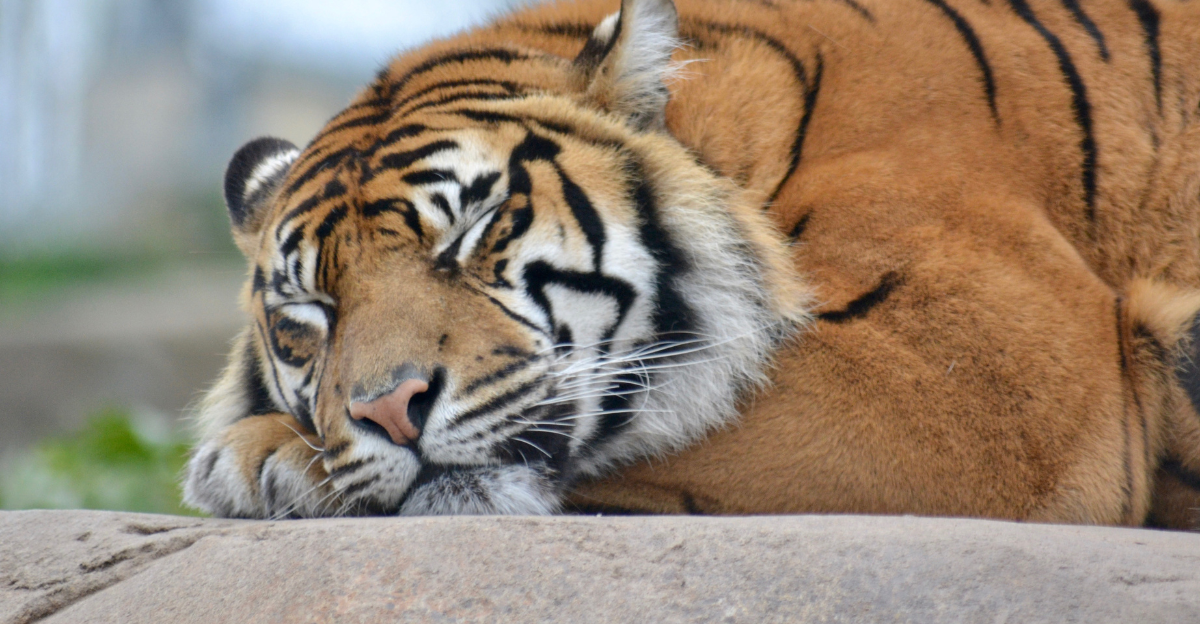
Tigers are stunning, powerful, and remarkably sleepy. These lone cats sleep on average 15.8 hours a day. They ambush prey at twilight or dawn. And then? It’s nap time.
Their muscular bodies need rest, and stalking burns a great deal of energy—even if nothing is caught. Out in nature, it’s all about maintaining energy to stay alive.
Whether basking in the forest shade or tall grass, tigers nap between meals, waiting for the next opportunity to strike. Though they’re kings and queens of the jungle, they spend most of their time sleeping, not roaring.
9. Tree Shrew – 15.8 Hours
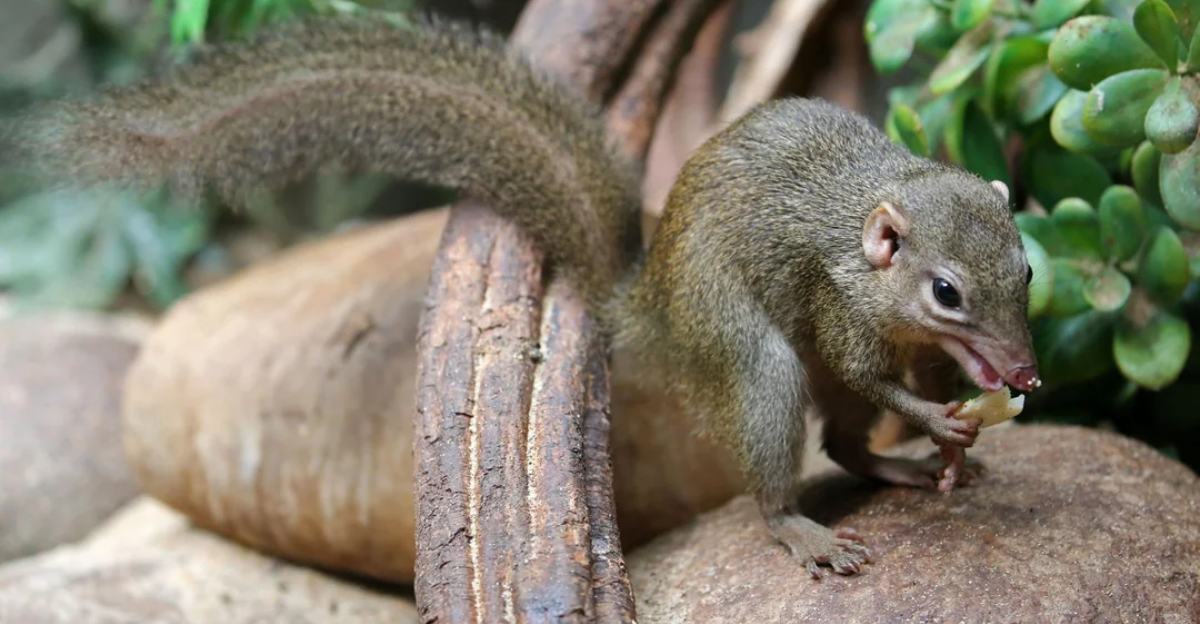
You might not expect a small, squirrel-like creature to be on the list, but tree shrews are surprisingly near the top of the sleep list. Ticking in at around 15.8 hours a day, these Southeast Asian mammals are surprisingly complex sleepers.
One of the few non-primate mammals whose sleep cycle is comparable to ours—complete with REM phases. Day-active animals that sleep in their nighttime retreats in nests in trees.
With high metabolisms, they must rest, given how active they are during the day. They’re not actually shrews, despite the name. But they are true sleep champions. Tiny, mighty, and very sleepy.
Explore more of our trending stories and hit Follow to keep them coming to your feed!

Don’t miss out on more stories like this! Hit the Follow button at the top of this article to stay updated with the latest news. Share your thoughts in the comments—we’d love to hear from you!







